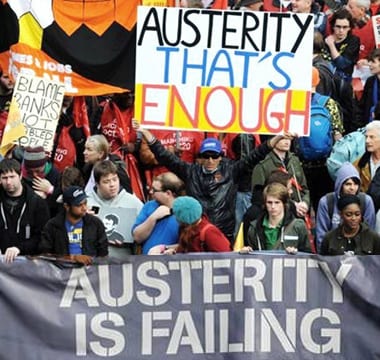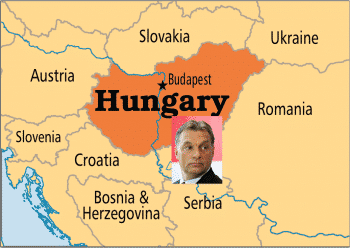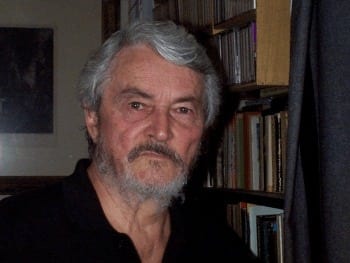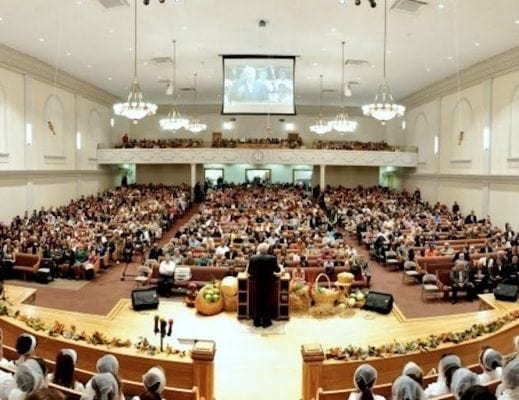=By= Ken Ovenden

Kevin Ovenden argues for an internationalist approach to the European crisis in the second half of a two-part series on the European question
Don’t blame the Easterners
It is now fashionable in Brussels to talk of an “illiberal bloc”, comprising mainly Poland, Hungary, the Czech Republic and Slovakia. Even some commentators on the left have given credence to that idea.
While there are some regional variations and affinities in the emergence of far right and fascist forces in Europe – the four so called Visegrad countries mentioned above and the “Peoples Parties” in Scandinavia, for example – they do not fit into a neat pattern. Certainly not one of the advanced and liberal West versus the backward and authoritarian East. Nor into creditor North versus debtor South.
The Front National began its advance in France in 1983, when the Iron Curtain still divided Europe. Gert Wilders’ far right party is topping the polls in the thoroughly modern European country of the Netherlands. The far right has advanced strongly in Croatia, but not in Serbia. Golden Dawn broke through in Greece, but there is no equivalent in Spain, Portugal or Ireland.
As if to underline that the radicalising right cannot be consigned as an Eastern European problem, Switzerland, which is not in the EU but where the anti-Muslim and anti-migrant People’s Party is the largest in the federal parliament, a few days after the result in neighbouring Austria lifted the ban on the Hitler salute; so long as it is used as a matter of “personal expression”, you understand.
As for the idea that it is a quartet of Eastern European states that is preventing the EU from taking a firm line in defence of democratic freedoms you have only to look at how Brussels responded to the emergence of the first authoritarian government of that supposed bloc, Victor Orban’s in Hungary, to see that the claim is a smokescreen.

Hungary and Vickto Orban
Orban leads a hard right party in government. It has similarities with the Austrian FPO. But in Hungary the outright fascist forces are organised separately in the Jobbik Party, very similar to Golden Dawn and, with 21 percent, the third party in parliament.
On taking office a second time in 2010 Orban began a serious clampdown on press freedom, civil liberties and human rights. There were detailed reports from organisations such as Amnesty International. The EU made some noises. Nothing was done.
The only time it seriously threatened action was when Orban looked like he was going to defy the EU’s Fiscal and Stability Pact rules on government spending and when he flirted with forging a closer relationship with Vladimir Putin’s Russia. Brussels stirred. Orban backed down. The EU slumped back to inaction.

Poland’s Law and Justice Party
Now the same officials in Brussels say that it is the threat of a Hungarian veto that is preventing them from moving beyond a ponderous investigation into the flagrant breaches of judicial independence, women’s rights and the rule of law by the hard right Law and Justice Party that was recently elected in Poland.
Compare all that with Greece and the treatment of its left wing anti-austerity government last year. Within days of Syriza being elected, the EU had moved to throttle Greece’s financial lifeline and to lead the member states in a concerted effort to crush the government in Athens and the popular resistance in Greece to austerity.
The Europe question and the left
![From Big Pharma, the Nazis and the Origins of the EU...[Paul Anthony Taylor] New Horizons 2014 - Paul Anthony Taylor](https://www.greanvillepost.com/wp-content/uploads/2016/06/EURight-350x263.jpg)
From Big Pharma, the Nazis and the Origins of the EU…[Paul Anthony Taylor] New Horizons 2014 – Paul Anthony Taylor
Far from countering the far right and authoritarian tendencies, the EU – with its austerity, Fortress Europe, anti-democratic diktats and endemic national antagonisms – is generating those reactionary features: and not only on the far right.
The EU is fully behind the French government of Francois Hollande. It has suspended basic freedoms under an eight-month old state of emergency and is using the militarised police to batter through new austerity measures passed not by parliament, but by executive decree.
If the EU will not willingly put up opposition to the far right, then perhaps it might find itself becoming some line of defence, if only because the far right will clash with it by threatening to break with the EU, or with the Eurozone, or with their rules?
That appears to be the hope of those on the European left who on the one hand say that they are fully aware of how undemocratic and reactionary the EU is, but on the other maintain that it is nevertheless an obstacle to racism, fascism and war, and that it must be defended against all the pressures to break it up. And then reformed.
This hope rests on a number of confusions. I will focus on just two. The first is that it accepts the now mainstream liberal-capitalist view that the future of Europe is either preserving the EU and its further centralisation (with reforms – all the leaders talk of those) or its breakup into reactionary national states with resurgent fascism and war. Or, as it is often put, the choice is between rational politics of the centre or “populism” of the “extremes”.
Many commentators, far from the left, now invoke as a parallel a dubious reading of the history of the 1930s in which a breakdown of trade and the global market led almost directly to the Second World War and the Holocaust.
Let us put to one side that peculiar and tendentious history of the 1930s, informed as it is by an ideological commitment to free market capitalism, which makes it all the more surprising that it is endorsed by the Keynesian economist Yanis Varoufakis.
The problem is that it is the very mechanisms of the EU itself, particularly in response to the succession of crises – the banks, the austerity, the refugees… – which are generating reactionary trends such as racism, chauvinism and authoritarian rule.
The far right and fascists give those a particularly dangerous and virulent form. But it was not the far right who did a deal with Turkey to keep out the refugees. Doing that creates the conditions for and necessitates widespread anti-refugee racism to justify the policy. That was the work of Angela Merkel, at the head of the pack of mainstream governments, including Francois Hollande, David Cameron and Alexis Tsipras.
Strengthening the EU does not mean less reaction. It means more, and out of it the potential further growth of the fascist right.
The future prospect is not the EU versus reactionary disintegration. It is an EU of crisis, constantly breeding reactionary forces even as it centralises in order to deal with renewing pressures to pull it apart.
And – the second confusion – it is not the case that the only anti-EU forces looking to break the bosses’ club up are reactionary ones. Nor is it true that the assorted far right and fascist groups in different European countries constitute a single block, each with the same policy of pursuing a national break from the EU.
The spectrum of radical right wing forces varies from racist and chauvinist populists such as UKIP in Britain through to out and out fascists, such as Golden Dawn in Greece.
Racism and Islamophobia are central to all of them. Here is not the place to analyse the structural and other differences between them, nor the specific nature of those that pursue a fascist, militarist strategy. But one difference that is relevant here is their diverse political positions in relation to the EU.
Four examples illustrate that. UKIP is for Britain leaving the EU. The fascists of Golden Dawn are for Greece staying in the EU – with all sorts of demands for further reactionary policies, for sure: but staying nonetheless.
The Law and Justice Party in Poland is firmly committed to the EU and to its twin, Nato. It is for more aggressive action by both of them against Russia. Its supposedly “Eurosceptic” rhetoric is directed against liberal values and against the Polish left, which it accuses of not being really Polish. On occasion it may sound off against German domination of Europe. But it is not for a rupture with the EU itself.
The Austrian FPO has the position outlined above of staying in the EU, violently opposing Turkish membership, and taking a hard economic line against the debtor countries of the European South (maybe kicking Greece out) and the “backward” countries of the East.
Other far right and fascist forces show similar variations. The fundamental reason for that is that the disparate far right in Europe is not the radicalisation – the taking to extreme – of some kind of “Eurosceptic feeling”, which is sort of floating around the continent.
The term “Eurosceptic” is, in fact, pretty useless for socialists. It was coined to describe British Tory MPs who rebelled against the Maastricht Treaty in parliament in 1992.
Since then it has been a catchall of the pro-capitalist media applied both to the French radical farmer Jose Bove, who attacked a branch of McDonalds to protest against corporate capitalism, and to the veteran French fascist, Jean-Marie Le Pen, who called the Holocaust a “minor detail of history”.
The raw material the far right are scooping up and radicalising is not the poorly constructed journalistic term: “Euroscepticism”. It is from the swamp of right wing and reactionary trends within each of the far right’s own nation-states and national political realities.
The far right and fascist parties are a radicalisation of the right wing of politics, and ultimately of the elites, in each of their respective countries.
That is why they do not have a common line on the EU and other questions relating to the divergent national and imperialist interests of their “homelands”.
So UKIP grew out of, and has radicalised, the anti-EU position of the right wing of the British Tory Party. All right wing forces in Greece – along with the whole of the Greek state and ruling class – are in favour of staying in the EU and euro. So, therefore, is Golden Dawn, despite rhetorical sallies against “German domination” of Europe.
The hard right Polish government’s position favouring Nato expansion against Russia and staying in the EU is a radicalised version of the policy of the mainstream Polish right and is the historical position of most of Polish big business. Apart from anything else, the EU subsidies to Poland’s elites, in order to build it up as a state on the frontier of a new Cold War with Russia, have been huge.
The FPO may try to channel the resentment at the base of Austrian society at the way the corrupt political system has further depleted democracy since joining the EU in 1995. But its position on EU membership is not fundamentally different from many on the right of the centre-right OVP.
This does not mean that the radicalising right is simply and directly an expression of the interests and policies of their respective capitalist classes. That is clearly not the case. Three-quarters of British big business are for staying in the EU on essentially the same terms as now. UKIP is definitely not.
But the main political instruments of big business that are meant to represent those interests – parties such as the Tory party in Britain – face a crisis everywhere in Europe. One side of it is in failing to come up with policies to escape the multiple crises: economic, social and political. The other is in their declining social and electoral support.
The bloodletting in the Tory Party over Europe is one extreme example of the consequences. They are not unique to the British centre right: Angela Merkel’s CDU is bitterly divided; the leader of the centre right in Greece recently expelled the entire youth section.
This is the context in which all sorts of far right forces are seeking to radicalise politics found on their mainstream, national right wings – and to grow. They, and the fascist formations especially, pose a particular danger.
They are political actors in their own right. Their demagogic rhetoric against “elites” and “the establishment” can give them inroads into unemployed and working class layers that the crisis-ridden centre-right parties struggle to penetrate.
But however much they portray themselves as independent from the wealthy elites, they require the support of at least a substantial layer of the capitalist class and of its state to advance seriously and to come to power.
So they constantly seek to offer a programme, however utopian and lacking in coherence, that may ultimately win the elites’ political support. They belong to the crisis of the political system and of capitalism’s strategies to pursue its interests. They are independent from neither.
The far right can be stopped
The far right is not the only political expression of European crisis. So too is the radical left.
The run-off round of the Austrian presidential election took place five weeks before the second general election in the Spanish state, after the earlier one six months before failed to deliver a government, even a grand coalition.
As Austria voted, Spanish polling showed that the radical left alliance of Podemos and the United Left held second place on about 24 percent. Whatever the poll movements up to 26 June, there is no far right party arising from the crisis of the Spanish political system.
Portugal is similar, as is Ireland, where the anti-capitalist and radical left broke through in recent elections, north and south.
It is hardly a sufficient answer, however, to the shocking near victory of a fascist in Austria to point to the electoral successes of the left in the Iberian Peninsula, Dublin, Belfast and elsewhere.
And in Germany, where the radical left Die Linke has existed for a decade, the far right AfD, founded only three years ago, has made serious advances. The radical left is on about 9 percent in the opinion polls. The AfD is on 14 percent – with the general election due in September next year.
The mere existence of a radical left party, even where it has parliamentary representation, as Die Linke does, is not in itself an answer to the far right threat. It is critical for the radical and anti-capitalist left to be at the centre of two other, related things.
The first is a mass and militant movement against fascism and the far right, but also fighting against the wider racist climate created by European institutions and governments. For it is that racism which is paving the way for the far right’s advance.
The launch two months ago of the Aufstehen Gegen Racismus (Stand Up Against Racism) initiative directed against the AfD and against the wider racist politics in Germany will, we must hope, encourage those in Austria who organised the magnificent solidarity with the refugees last summer in their efforts to create something similar to confront the FPO.
The second is to seek to situate the fighting left in, and to develop, the manifold struggles against austerity – from strikes and community revolts, to all manner of social movements.
Increasingly, that requires a preparedness to confront head on the forces of austerity, no matter who is in government, and to offer anti-capitalist answers when the movement runs up against the argument that there is no alternative in Europe as it stands.
Nowhere more demonstrates the potential power of the working class and allied movements to marginalise even a powerful and established fascist force than the current revolt in France.
There is very much more to be said about both of those crucial roles of the left. And it is a success of the anti-capitalist and radical left activists in Greece that despite the Syriza capitulation the drawing together of the struggles both against austerity and for the refugees is a major reason why the fascist right has been penned back over the last year.
There is 27 percent unemployment in Greece and there are 50,000 refugees stranded by the EU-Turkey deal. Yet a survey a month ago found that 85 percent of people say, “Greece must help the refugees.” That ought to be impossible according to much fashionable thinking. It was made possible by the movements at the base of Greek society and the initiatives taken there by the fighting left – often taken when they were not in fashion at all.
There is one final point. Austerity Europe and Fortress Europe are two faces of the EU and of the response of the European elites to the crisis.
The struggles against austerity capitalism and against racism are unfolding in each national context. They mean confrontation with governments of the member states of each of the 28 EU countries.
But the semi-organisation of those states and their capitalist interests into the cartel of the EU means that everywhere that cartel is throwing its weight against opposition movements, behind the governments imposing vicious measures and alongside the employers who are demanding more.
That means that for the radical left and for the movements the struggles need to be directed against the EU cartel as well as against the domestic national government.
Failure to do that leaves the space wide open for the far right parties to exploit the bitterness at Europe’s undemocratic and anti-working class institutions and to frame it with their brand of radicalised right wing politics, based on the national antagonisms and reactionary forces the EU produces. The ultimate aim is to serve the respective national elites.
A recent statement from three left wing unions – the RMT, ASLEF and BFAWU – in Britain arguing for a left wing Leave vote in the referendum put it very well: “We are against a fortress Britain, so we are against a fortress Europe.”
That points to a unifying and fighting position for the left and labour movements across the continent: against the EU of austerity, racism and war. That means breaking it up, and building instead solidarity on an internationalist and anti-capitalist basis.
That perspective can help to develop the struggles against austerity and racism, and to overcome the efforts to blunt them by the failed establishment politicians who tell us to put faith in them and in their club in Brussels – and who wave as a stick to threaten us the very far right forces which the establishments, national and European, are producing and cooperating with as this crisis grinds on, and on.
Kevin Ovenden is the author of Syriza Inside the Labyrinth, which is being published this autumn by Pluto Press. Kevin is a longstanding socialist activist and writer in Britain who has closely followed Greek politics, society and culture for over twenty-five years. He was for many years a member of the Socialist Workers Party in Britain and then a leading figure in the Respect Party. He writes particularly on racism, the politics of the Middle East and the crisis of the Eurozone for a range of outlets.
Note to Commenters
Due to severe hacking attacks in the recent past that brought our site down for up to 11 days with considerable loss of circulation, we exercise extreme caution in the comments we publish, as the comment box has been one of the main arteries to inject malicious code. Because of that comments may not appear immediately, but rest assured that if you are a legitimate commenter your opinion will be published within 24 hours. If your comment fails to appear, and you wish to reach us directly, send us a mail at: editor@greanvillepost.com
We apologize for this inconvenience.

 Nauseated by the
Nauseated by the
vile corporate media?
Had enough of their lies, escapism,
omissions and relentless manipulation?
GET EVEN.
Send a donation to
The Greanville Post–or
SHARE OUR ARTICLES WIDELY!
But be sure to support YOUR media.
If you don’t, who will?
ALL CAPTIONS AND PULL-QUOTES BY THE EDITORS, NOT THE AUTHORS.

![]() Dispatches from
Dispatches from
![]() There is an alignment of NATO countries, largely directed by the US, to militaristically encircle Russia leading to discussions of a “new” Cold War. Interestingly, my memory of the Cold War was more of a stand off rather than persistent shoving matches (at least not directly). In other words, while there were numerous conflicts with others serving as proxies for the USSR and the US, there seemed to not be a lot of direct provocation. That does not seem to be the case today when the US, and its vassal states, are being out right provocative.
There is an alignment of NATO countries, largely directed by the US, to militaristically encircle Russia leading to discussions of a “new” Cold War. Interestingly, my memory of the Cold War was more of a stand off rather than persistent shoving matches (at least not directly). In other words, while there were numerous conflicts with others serving as proxies for the USSR and the US, there seemed to not be a lot of direct provocation. That does not seem to be the case today when the US, and its vassal states, are being out right provocative.![]()
 Our Senior Editor based in Rome, serves—inter alia—as our European correspondent. A veteran journalist and essayist on a broad palette of topics from culture to history and politics, he is also the author of the Europe Trilogy, celebrated spy thrillers whose latest volume, Time of Exile, was recently published by Punto Press.
Our Senior Editor based in Rome, serves—inter alia—as our European correspondent. A veteran journalist and essayist on a broad palette of topics from culture to history and politics, he is also the author of the Europe Trilogy, celebrated spy thrillers whose latest volume, Time of Exile, was recently published by Punto Press.





 Currently holds the Global TV Network Chair Professorship at McMaster University in the English and Cultural Studies Department and a Distinguished Visiting Professorship at Ryerson University. His books include:
Currently holds the Global TV Network Chair Professorship at McMaster University in the English and Cultural Studies Department and a Distinguished Visiting Professorship at Ryerson University. His books include: 


![From Big Pharma, the Nazis and the Origins of the EU...[Paul Anthony Taylor] New Horizons 2014 - Paul Anthony Taylor](https://www.greanvillepost.com/wp-content/uploads/2016/06/EURight-350x263.jpg)